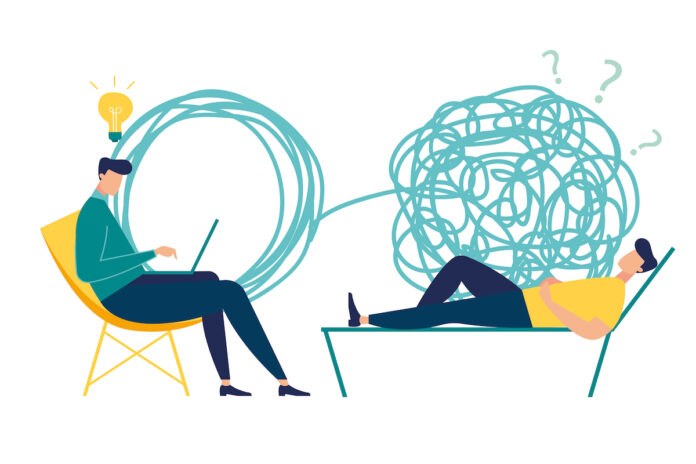
What is Emotion-Focused Therapy
Understanding Emotion-Focused Therapy
Focused on emotions therapy (EFT) seeks to heal by positing that emotions are closely linked to our identity. Emotions help us define preferences and making choices daily. EFT is based on the assumption that:
- Inattention to emotions can be dangerous
- Refraining from your emotions could result in negative consequences in your life
- In time, not addressing or avoiding your emotional reaction can affect your ability to process your emotions later on.
A therapist who is trained in the field of therapy that is focused on emotions therapy can assist you in become aware of your feelings and comprehend these emotions. These experts can give you strategies to deal with as well as managing the emotion.
Techniques that are used in emotion-focused therapy. During an EFT session both the therapist and you have an equal stake in the therapy results. The collaboration between you and your therapist is an ongoing process that evolves with time. Your therapist assists you through the process of interpreting your feelings rather than giving you the information they see in your own experiences. Your therapist:
- Take time to listen with compassion
- Do not judge your emotions
- Utilize a reflective approach when asking questions.
- You can reach your emotions through expanding consciousness and accepting of your emotions.
- It is possible to translate your feelings into useful data as a method of keeping negative outcomes from happening.
Each person will move at their own speed through an emotional-focused therapy. In your sessions your therapist will assist you in the following ways:
- Be aware of your feelings
- Be open to accepting your feelings, no matter the subject matter.
- Let your emotions flow freely, without any restrictions
- Control your emotions to ensure they don’t take over your life.
- Write down how you feel in full
- Learn your “why” behind your emotions
If you are able to achieve these results the next steps in therapy are:
- The ability to identify emotions as helpful or harmful
- Let your emotions direct your actions
- Recognizing where negative emotions come from and transforming them
- Develop healthy coping strategies
- Create an internal monologue that can help you overcome negative thoughts
The measurement of the success. Emotion-focused therapy is considered to be successful when you meet the objectives of:
- Awakening your consciousness of the emotional experiences in general
- Enhancing your emotional regulation and strategies for coping
Impact of Emotion-Focused Therapy on Your Health
Therapy that is focused on emotions therapy is effective in a myriad of situations.
Depression. If you suffer from depression, you might be more prone to avoid certain things in your daily life. This usually leads to lower mood , and can persist with a downward spiral. EFT assists you in dealing with these challenges by empowering yourself. Although it can’t treat depression, this type of therapy provides you with the tools to manage symptoms that can cause more negative feelings.
Afraidness. If you have an extreme anxiety level, you could feel overwhelmed by your difficulty in regulating you feelings. The stress and anxiety can take over your daily life, and functioning gets more difficult. The emotional-focused therapy helps you distinguish between useful and harmful emotions, allowing you to better manage your self-control.
Therapy that is focused on emotions therapy can also help with:
- Child abuse or neglect
- Eating disorders
- Personality disorders
- Personal issues with other people
- EFT has been proven to be highly effective in working with couples who are struggling
Pros of Emotion-Focused Therapy
It’s been proven to work. Research has proven that EFT is effective for both individuals as well as couples therapy. In numerous studies that evaluated therapies, emotion-focused therapy provided results that were equally beneficial, if not even more so as other techniques of therapy. The most significant result of one study was that EFT is effective at 77% in preventing relapse.
Other benefits are:
- Understanding the connection between outcomes and empathy
- The formation of alliances for couples
- Greater depth of understanding the everyday world
- Understanding emotions
Cons of Emotion-Focused Therapy
cannot treat all problems. If you have particular psychological issues, such as anxiety or impulse control EFT is only able to help you to the point. The effects of the impulse control and panic go beyond the emotions you experience to:
- Thoughts
- Feelings
- Sensations
You need to be open to changes. For emotion-focused therapy to be successful, you must be willing to participate in the process. If you’re not honest and transparent you’ll never get the results you want. If you’re able to demonstrate compassion for yourself and be open with your therapist, then EFT might be the right choice for you.
Some symptoms could persist. Emotion-focused therapy is intended to enhance the overall quality of your life. If mental health issues persist after you have completed your the emotion-focused therapy discuss it with your doctor.